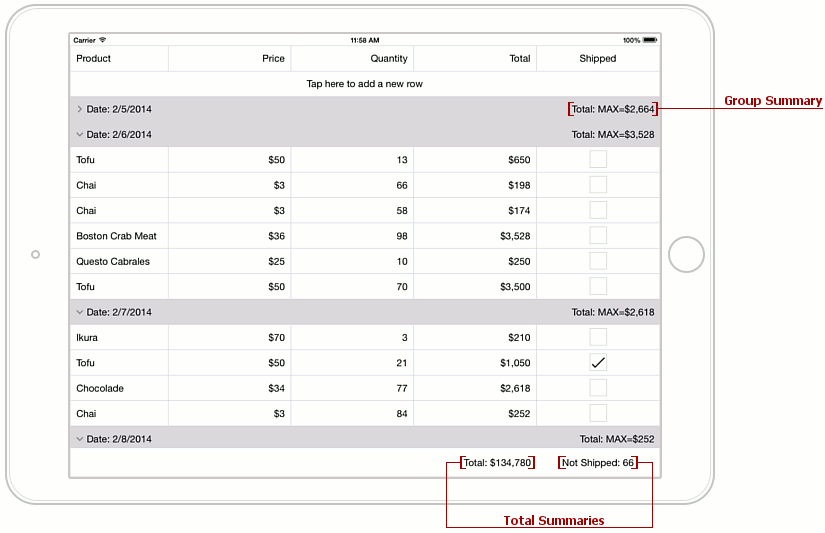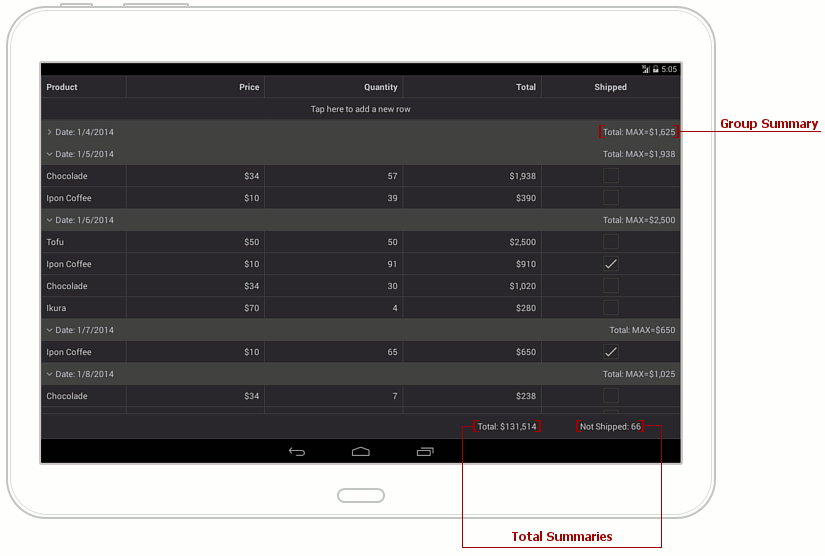GridColumnSummary.DisplayFormat Property
Gets or sets the pattern used to format the summary value. This is a bindable property.
Namespace: DevExpress.Mobile.DataGrid
Assembly: DevExpress.Mobile.Grid.v18.2.dll
#Declaration
#Property Value
| Type | Description |
|---|---|
| String | A String value that specifies the pattern used to format the summary value. |
#Remarks
Important
This documentation topic describes legacy technology. We no longer develop new functionality for the Grid
Use the DisplayFormat property to format the summary value and add any text to its textual representation. The general pattern is shown below:
<custom static text>{0:<format specifier<precision specifier>>}<custom static text>
- {0} - the summary value’s placeholder;
- format specifier - specifies the formating type (currency, scientific, etc);
- precision specifier - specifies the number of characters displayed after the decimal point.
For example, to display currency values, set the DisplayFormat property to ‘Total: {0:c2}‘. If the summary value is 123, its formatted equivalent will be ‘Total: $123.00‘.
When the format string is not specified for a summary, default formats are used. The following table displays the default format of each summary type for a total and group summary.
| Summary Type | Total Summary Format | Group Summary Format |
|---|---|---|
| Average | AVG={0:column |
summary |
| Count | {0} | {0} |
| Min | MIN={0:column |
summary |
| Max | MAX={0:column |
summary |
| Sum | SUM={0:column |
summary |
#Example
This example shows how to calculate group and total summaries for grid columns using predefined aggregate functions or a custom rule.
The following data summaries are created.
- Group summary to display the maximum value in a Total column for each group of records.
- Total summary to calculate the sum of values by the whole Total column.
- Custom total summary to count the number of rows whose value in the Shipped column is false.


void OnCalculateCustomSummary(object sender, CustomSummaryEventArgs e) {
if (e.FieldName.ToString () == "Shipped")
if (e.IsTotalSummary){
if (e.SummaryProcess == CustomSummaryProcess.Start) {
count = 0;
}
if (e.SummaryProcess == CustomSummaryProcess.Calculate) {
if (!(bool)e.FieldValue)
count++;
e.TotalValue = count;
}
}
}